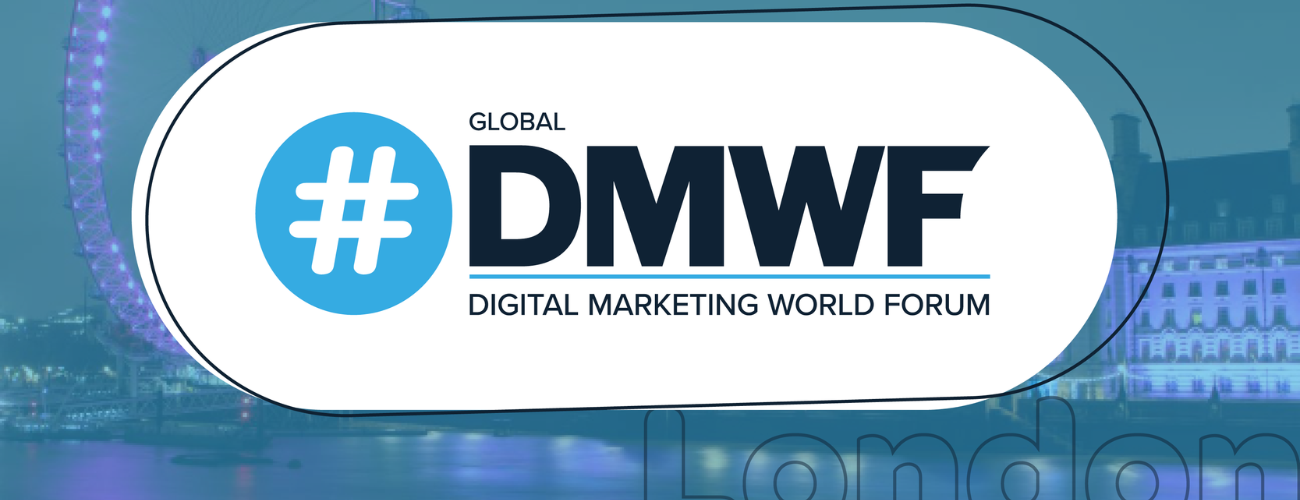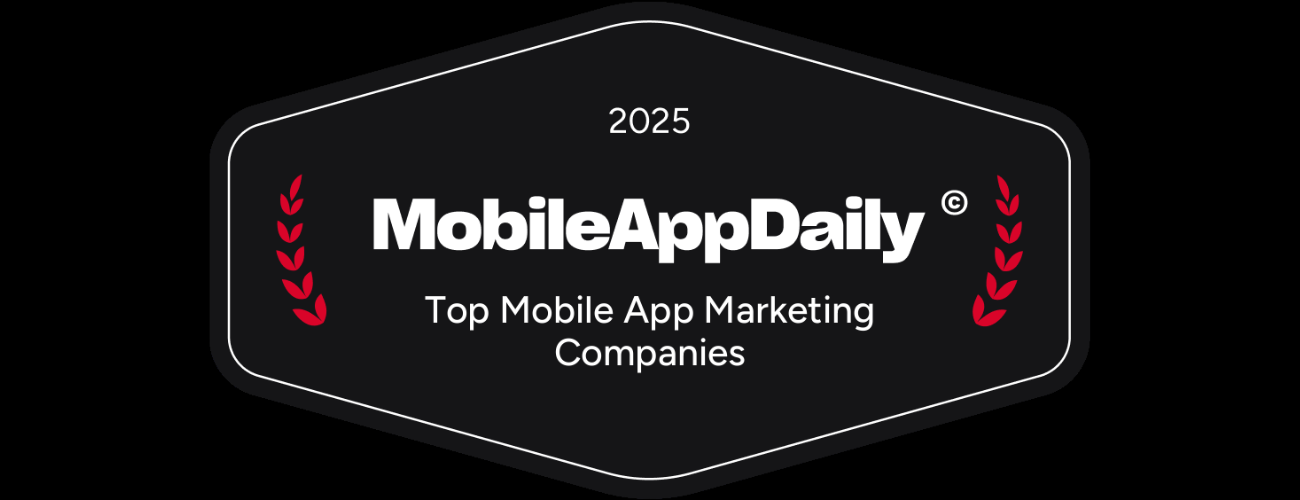This Digital Marketing World Forum (DMWF) London 2025 brought together leading voices from across the digital marketing landscape to explore the latest innovations shaping the industry. From AI-driven strategy and evolving consumer behaviours to the changing nature of search and engagement, the event was packed with forward-thinking insights and actionable advice for brands navigating a rapidly shifting digital world.
Whether you were in the room or watching from afar, it was clear that marketers must stay nimble in the face of constant change, particularly when it comes to mobile, search, and customer experience.
In this blog, we’ve rounded up three of the most thought-provoking sessions from the event.
The unsaid: The mindsets driving AI leadership in marketing
One of the standout sessions at DMWF London 2025 tackled a question many organisations are grappling with right now: Why are some companies accelerating with AI while others stall at the starting line?
According to a global research project shared by Maxwell Minckler from Google, ‘The Unsaid: The Mindsets Driving AI Leadership in Marketing’, the key to AI success in marketing isn’t technology or budget, but mindset.
The team behind the research took a unique approach: rather than rely solely on self-reported surveys or interviews, they studied marketers’ real, unfiltered communication. They pored over emails, meeting notes, and internal language to uncover the unsaid beliefs shaping how companies approach AI.
Their findings revealed three dominant mindsets:
1. FOMO – The fear of missing out
This mindset is rooted in urgency and pressure. Companies here are driven by a reactive impulse: “Everyone else is doing AI, we have to do it too.”
Language within these organisations is often obligation-heavy: “We must”, “We have to”, “We can’t be left behind.” While this can be a useful motivator, it often leads to rushed decisions, copycat strategies, and fragmented efforts. Without a clear direction, AI initiatives risk becoming superficial or unsustainable.
2. FOMU – The fear of messing up
On the other end of the spectrum is FOMU, where companies are paralysed by risk aversion. AI is seen as something that could go wrong, bring unintended consequences, or disrupt stability.
These teams tend to over-index on risk assessments, stick rigidly to legacy systems, and run small experiments that rarely scale. Progress is slow, not due to lack of capability, but due to an underlying fear of change.
Interestingly, many organisations operate with both mindsets in tension, a push-pull of wanting to move fast but being too cautious to act decisively. The result is often stagnation.
3. FOMA – The focus on meaningful advantage
The most successful companies, the ones truly transforming with AI, were found to embrace a third mindset: FOMA. These teams aren’t driven by fear but by opportunity. They focus on how AI can create real, meaningful value in their roles and across the business.
This mindset manifests in language centred around collaboration, empowerment, and transformation. AI isn’t just a tool; it’s a partner in reimagining work. Employees experiment proactively, leaders support grassroots innovation, and there’s a strong personal motivation to explore what’s possible.
As one speaker put it, “Get the mindset right, and the right AI will follow. Get it wrong, and the best tech just sits on the shelf.”
The talk closed on a poignant personal note. One of the researchers described how his young son used generative AI to bring a long-running imaginary character to life, and called it “magic.” It was a timely reminder that AI transformation isn’t just a technical journey. It’s an emotional and imaginative one too.
The evolving role of SEO in marketing strategies
As the digital landscape continues to shift, SEO is no longer just about optimising for Google, it’s about being discoverable across a growing number of platforms, from TikTok to voice assistants. This panel brought together voices from agency, in-house, education, and publishing backgrounds to explore how SEO is adapting to new consumer behaviours and emerging technologies.
SEO is fragmenting, but that’s not a bad thing
David Keene, Chief Marketing Officer, Ex-Google, kicked off the panel by highlighting how search has moved far beyond traditional engines. Today’s user journey may start on TikTok, pass through Reddit, and end in a brand app, making the SEO challenge more complex and dynamic than ever. Ian, speaking from a BBC education content perspective, described how young users are now finding revision content through unconventional channels like Snapchat AI and YouTube Shorts. His team’s role? Reducing technical friction and ensuring discoverability wherever users are.
Don’t panic, but evolve
Emma-Jane Stogdon, Organic Content Manager at Wise, emphasised the importance of staying calm amid the AI shake-up. Her advice? “Don’t panic. Stick to SEO fundamentals.” While AI-driven overviews are reshaping visibility for informational keywords, she’s noticed even commercial and transactional terms are starting to surface within AI search results. Her solution: focus on robust customer profiles and topic authority, not just keyword rankings.
From clicks to conversations
Sam Hailstone, Director of Organic Performance at Brave Bison, added that we’re moving into a “post-click world.” That means SEOs must now measure their impact across a fractured journey, where users may never even visit your website. The goal: shape the narrative and show up where it matters. His team is leaning into structured content like FAQs to support both AI-readability and user value.
Travel, TikTok, and AI
Wesley Van der Hoop, Global Head of Search (PPC & SEO) at Unique Vacations Ltd, shared a travel sector perspective, noting a key shift: consumers are ditching guidebooks for TikTok travel tips and AI-generated itineraries. The challenge (and opportunity) is for brands to meet users in these informal, fast-moving environments, without compromising on accuracy, trust, or creativity.
Mobile is the frontline of search in 2025 – and the key to success
Megan Dean, Clair Software Strategy Growth Director, shared how search is evolving at pace, and how in 2025, mobile will become the epicentre of this transformation. With the rise of AI-driven results, platform fragmentation, and multi-format discovery behaviours, traditional SEO alone is no longer enough. To compete, brands must adopt a Search Everywhere mindset, one that’s mobile-first, cross-platform, and user-intent led.
From rankings to relevance: How search has changed
The traditional model of search, typed queries, blue links, and click-throughs, has given way to AI-powered, zero-click experiences. Tools like ChatGPT are reshaping how users gather information, summarising sources and bypassing traditional traffic funnels.
Discovery is now multi-platform
Search is no longer confined to Google. Users now explore content through social platforms, marketplaces, AI tools, and app stores, often simultaneously.
- Social platforms like TikTok and Instagram are used for both inspiration and research.
- Voice and image search are growing, especially among Gen Z and Gen Alpha.
- AI agents are influencing user behaviour through summarised answers and recommendations.
This cross-platform complexity demands a multi-touch strategy that reaches users at every stage of their journey.
Mobile is the core discovery device
With 87% of digital time in the UK spent on mobile and apps accounting for the majority of that time, mobile has become the primary channel through which discovery and conversion take place.
Mobile search behaviours, voice queries, visual exploration, and app store browsing are now central to brand visibility and growth. Importantly, conversion rates from mobile apps are often significantly higher than those on desktop or mobile web, particularly in verticals like e-commerce and fintech.
The App Store as a modern search engine
The Apple App Store has evolved into a curated, editorial-led discovery engine. It promotes apps through high-impact placements like “App of the Day” and seasonal features, which can deliver hundreds of thousands of impressions in 24 hours.
Success here requires more than keyword optimisation; it demands storytelling, creative excellence, and the right blend of ASO, PR, and brand positioning. Megan has even pioneered a new ASO Growth Loop to help improve visibility infinitely.

Users are searching with context and intent
Search queries are becoming more specific and intent-driven. Generic searches are being replaced by long-tail, contextual queries such as:
- “Best budgeting apps for freelancers”
- “Quiet meditation apps with daily reminders”
- “Dating after divorce”
Brands need to match these micro-moments with equally contextual content, metadata and landing pages, across both web and app ecosystems.
Silent content and streamlined journeys
To bridge the gap between discovery and app adoption, forward-thinking brands are leveraging “silent content” and contextual landing pages that tie into right-app campaigns. These allow users to discover relevant experiences and seamlessly transition into the app, avoiding friction-heavy journeys.
This approach combines the reach of the web with the performance of apps, creating a smoother path to conversion while also aiding attribution in a privacy-first world.
In the end
DMWF London 2025 proved that the digital marketing landscape is evolving faster than ever, driven by changing user behaviour, AI innovation, and the growing dominance of mobile. Whether it was rethinking the role of search, building lasting connections through community, or aligning with deeper brand purpose, each of these standout talks offered a clear takeaway: marketers need to meet users where they are now, not where they used to be.
As we move forward, the brands that succeed will be those that stay agile, embrace emerging trends, and put meaningful experiences at the heart of their strategy.









